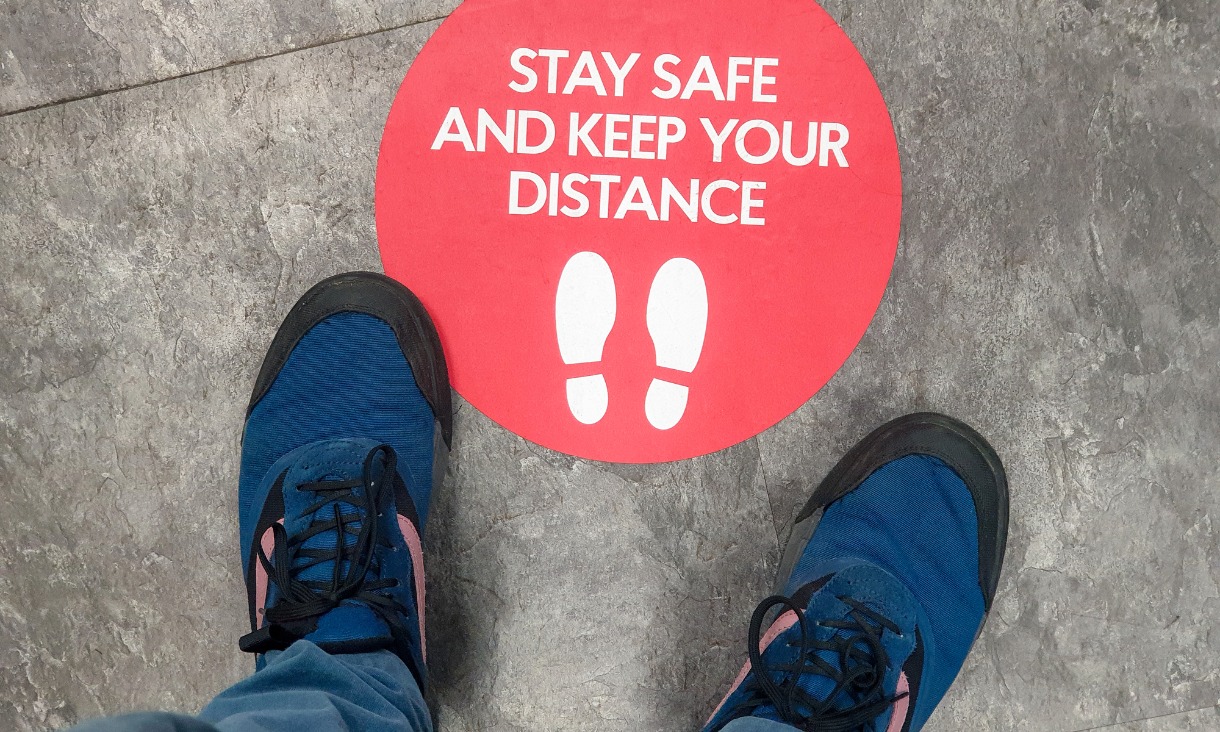RMIT experts available for comment on new COVID-19 restrictions in Victoria
Experts from RMIT University are available to talk to media, as stage 3 restrictions commence across greater Melbourne and parts of regional Victoria to prevent the spread of COVID-19.
Sustaining physical distancing
Associate Professor Eva Tsahuridu (0466 413 090 or eva.tsahuridu@rmit.edu.au)
Topics: Melbourne COVID-19 lockdown, moral behaviour, moral language, moral frames
“Some people are not listening. Fines and a focus on compliance will help somewhat. But, to get us all to do the right thing to benefit others, we need to 'see' the people our actions endanger, or even ‘interact’ with them to hear their stories and suffering.
“Graphs, statistics and percentage figures may work well for epidemiologists, but unfortunately, they won’t do the job for many Victorians.
“Referring to people who have been infected with COVID-19 as ‘cases’ (active, in hospital, or in ICU) also does not help. A case does not make us think of a human being, a person with a face, a name and loved ones.
“Creating ‘otherness’ is another thing to avoid.
“People who have another religion, other language or cuisine are us. The term ‘infections in public housing towers’ takes away the human face.
“It increases physical and psychological distance and isolates. It reduces the moral intensity of the issue and this will affect our decisions and behaviour.”
Eva Tsahuridu is an expert in personal and organisational ethics and an Associate Professor and Industry Fellow in the School of Accounting, Information Systems and Supply Chain at RMIT University. Her interests include personal and organisational ethical conduct, whistleblowing, ethical and professional standards and philosophy of management.
Containing the spread of the virus
Associate Professor Taghrid Istivan (03 9925 7107 or taghrid.istivan@rmit.edu.au)
Topics: antimicrobial resistance, drug development, pathogens, spread and detection of microbial infections
“A return to stage 3 lock down for six weeks is a necessary action that should have been taken earlier to stop the spread of COVID-19 cases, which initially “escaped” the quarantined travellers’ hotels probably in June, after the easing of restrictions across the country.
“The public housing lockdown was also a necessary action, but it should not be extended beyond the time needed to test all residents of the towers, due to its negative effects on the health and wellbeing of those residents.
“An important point to mention is the risk of keeping residents who are positively diagnosed with COVID-19 with other family members locked in a small crowded unit for an extended period.
“This will expose more vulnerable residents to infections rather than containing the spread of the disease.
“In addition to social distancing and the large-scale testing to detect carries, a mandatory requirement to wear face masks may help to control the spread of infections, as current research findings are pointing towards the potential of this virus to be carried and transmitted via very small particles in air and probably in air-conditioning systems.”
Associate Professor Taghrid Istivan is an academic in the School of Science. With a PhD in microbiology, her research focus is on molecular detection of pathogens, antimicrobial resistance and drug development.
 Keep your distance sign
Keep your distance sign
Better communication
Dr Margaret Heffernan OAM (0419 339 724 or margaret.heffernan@rmit.edu.au)
Topics: public health, indigenous and migrant health, vaccination and anti-vaxxers, gender and diversity imbalances
“The unique challenge of a six-week lockdown of metropolitan Melbourne and Mitchell Shire will test both urban and social resilience.
“Faced with the evolving uncertain and emergent nature of the COVID-19 threat, the overall governance of the city is fundamental to urban resilience.
“Nearly 40% of metropolitan Melbourne residents speak a language other than English at home, with disparate levels of language, media and health literacy.
“The abrupt lockdown of habitats of our inner-city populations and allegations that community leaders were not sufficiently consulted to educate their communities has fragmented this resilience, and deepened stigmatisation.
“Governments have a responsibility to minimise uncertainty. With sanctions of a six-week restriction, the social mindset is ill-prepared for this lengthy prohibition.
“Key stakeholders, led by government, now have a crucial role in supporting societal and urban resilience to avoid uncontrollable social and economic dislocation well beyond the impact of COVID-19.”
Dr Margaret Heffernan, OAM, is an academic in the School of Management at RMIT University. Her research focus is on public health education; especially Indigenous and immigrant health and immunisation. Her work over the past decade relating to adolescent HPV vaccination has resulted in numerous awards for cross-cultural collaborations and resource development across Australia and internationally.

Prepare for a second wave of scams
Professor Matthew Warren (0432 745171 or matthew.warren2@rmit.edu.au)
Topics: cyber security; information security; cyber warfare; critical infrastructure protection; cyber terrorism; cyber security policy; computer ethics; small business and cyber security; hacking; information warfare, fake news
“The second wave of COVID-19 will mean a second wave of coronavirus related scams.
“Scammers will play on people’s fears around the virus and try to use those fears to execute scams.
“Scams could relate to providing official information, information about cures, or the offer of business opportunities linked to the virus.
“People should be aware of this regarding emails they receive and avoid clicking on links in emails; instead they should go directly to the related website to view the information for its veracity.
“Scammers will use other technologies, apart from email, such as SMS text messages to rollout their scams.”
Matthew (Matt) Warren is the Director of the RMIT University Centre for Cyber Security Research and Innovation at RMIT University. He is a researcher in the areas of cyber security and computer ethics.
For media enquiries, please contact RMIT Communications: 0439 704 077 or news@rmit.edu.au
Acknowledgement of Country
RMIT University acknowledges the people of the Woi wurrung and Boon wurrung language groups of the eastern Kulin Nation on whose unceded lands we conduct the business of the University. RMIT University respectfully acknowledges their Ancestors and Elders, past and present. RMIT also acknowledges the Traditional Custodians and their Ancestors of the lands and waters across Australia where we conduct our business - Artwork 'Sentient' by Hollie Johnson, Gunaikurnai and Monero Ngarigo.